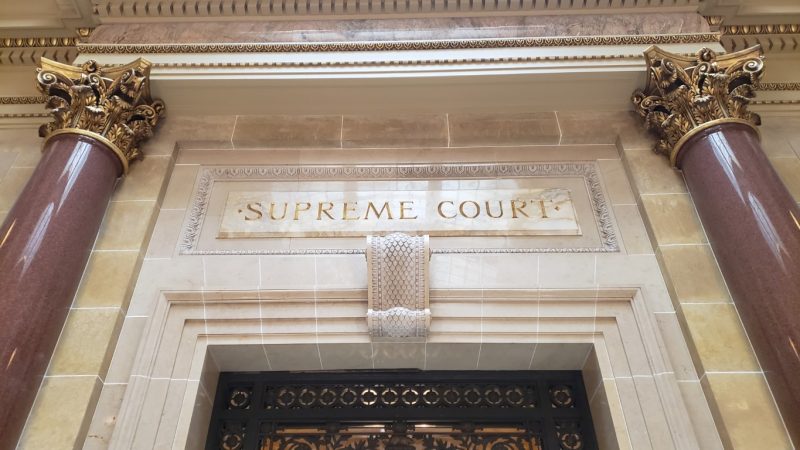The state Supreme Court today ruled three of Gov. Tony Evers’ partial vetoes in the 2019-21 budget were unconstitutional. Meanwhile, the court upheld one of Evers’ partial vetoes.
But in a twist, the court couldn’t agree on a rationale for why the three partial vetoes violated the Wisconsin Constitution.
In a separate case, the court declined to overturn partial vetoes that Gov. Scott Walker issued in the 2017-19 budget, ruling the challenge was filed too late.
In the Evers case:
>> WisPolitics is now on the State Affairs network. Get custom keyword notifications, bill tracking and all WisPolitics content. Get the app or access via desktop.
*five justices concluded his vetoes to the school bus modernization fund are unconstitutional, with the same five also finding the same on his vetoes to the local roads improvement fund;
*four concluded his vetoes to the vapor products tax were unconstitutional.
*and five ruled his vetoes to the vehicle registration fees were constitutional.
The partially successful suit was filed by the conservative Wisconsin Institute of Law & Liberty. It accused Evers of creating entirely new law without legislative approval. That includes one that turned $90 million GOP lawmakers wanted set aside for road work into $75 million in grants for local transportation costs.
The other vetoes: eliminated a $3 million grant program for school buses, replacing it with $10 million for electric vehicle charging stations and $15 million to replace municipal buses; altered the definition of vapor products to ensure liquids and other substances used in e-cigarettes are subject to a state tax; and rejected changes Republicans wanted to make to the vehicle registration fees, keeping the existing higher rates for heavier trucks.
The second suit was filed by Wisconsin Small Businesses United Inc. and five citizens. It challenged two vetoes of Walker’s issued in the 2017-19 budget. The suit argued that while the state Supreme Court has found governors can strike individual digits in monetary figures included in appropriation bills, the court hasn’t ruled they may strike digits in dates, creating new ones beyond what the Legislature had intended.
The challenged actions include what’s been dubbed the “thousand-year veto.” That’s because Walker used his partial veto authority to turn a legislative deadline of Dec. 31, 2018, into December 3018. In the second, Walker changed an implementation date from “July 1, 2018” to “July 1, 2078.”
Read the decisions:
https://wicourts.gov/sc/opinion/DisplayDocument.pdf?content=pdf&seqNo=269097
https://wicourts.gov/sc/opinion/DisplayDocument.pdf?content=pdf&seqNo=269245
Subscribers can see more in today’s REPORT.



